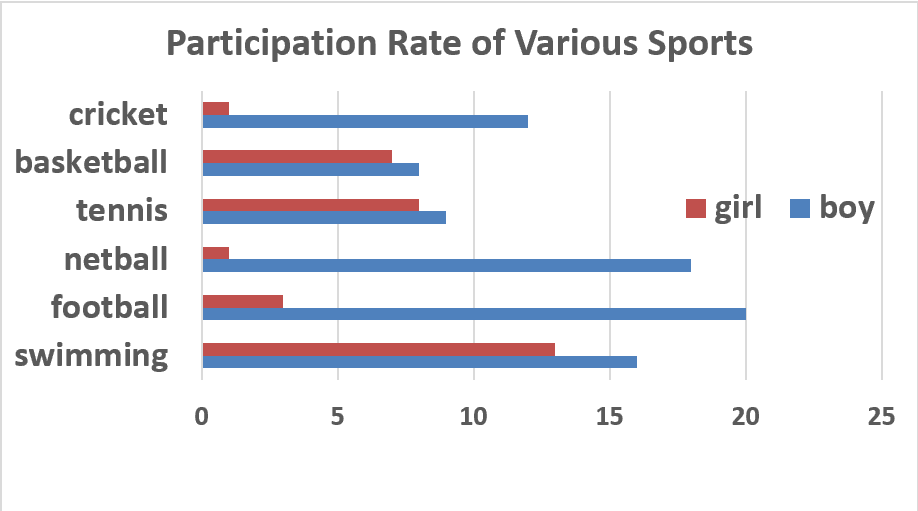GRE写作需要写多少字数呢?400字够了吗?今天小编给大家带来GRE写作作文400字够吗,希望能够帮助到大家,下面小编就和大家分享,来欣赏一下吧。
GRE写作:作文400字够吗
GRE作文字数并不是越多越好。试想,改卷人批上那么多试卷,头都大了,每一份都想尽快看完,根本不可能仔细研读,写了太多反而招致反感。但语言思辩一定要清晰,要抓住改卷人的好奇心、注意力,让他跟着你走,吸引他迫切想知道你下面会说什么。所以这就要求语言一定要流畅。
我自己有个毛病不知道是否也有人一样,就是思维跳远,往往造成不必要的省略和重复。因为下笔之前总是要先构思一下句子,想得越多越导致条约,如此会使文章读起来不连贯。我的朋友们看我写的作文都有这样的看法。这个也没什么好办法解决,只能说自己多熟练好文章的表达,培养语感,脱口而出啦。
一般来说,400字差不多了。另外,这里要提醒大家的是,不能光在机器上练啊,也得动动手啦,老是不写字手很生涩的。而且就我自己而言,打字的速度和写字的速度差别很大,特别是英文。
GRE写作满分范文赏析
"Wisdom is rightfully attributed not to people who know what to look for in life but to people who know what to overlook."
Never before in history have people been so beset with the overflow of ideas and images that the modern human must endure. We are constantly bombarded with news, advertising, and entertainment, so much so that we are often at a loss as to where we should focus our attention. This has lead to what many media critics have called "information anxiety," a term used to discribe the paralysis the ordinary human experiences when attempting to organize and synthesize the vast amounts of data that move past her everyday. Now, more than ever before, it can be seen that wisdom truly is attributable to those "who know what to overlook."
The Internet is a good example of the effects of information overload on people. Many people recieve hundreds of email messages a day, yet there is no possible way for them to respond, let alone read, all of these messages. Through practice they learn to pick out what will be of interest and to ignore the rest. A similar phenomena occurs when a person is "browising the web." Information, both trivial and profound, float by in a disorganized way. A person learns to ignore what is not relevant to their search. This is easily demonstrated by watching a person new to the Internet next to someone who is a veteran of the net. The new person will stumble on loads of irrelevant information while the veteran will most likely proceed to the information she seeks. This ability to overlook useless information is not only applicable to the net; consider the older but more established form of information known as the book.
Ever since Guttenberg rolled out his first few pages from his press humans have been wondering how to synthesize all this knowledge. Each year more and more books are written and published, more and more information is available to the public through bookstores and libraries, and each year the average person must struggle harder to find what she needs to know.. This is one of the primary reasons people are sent to college: they are taught how to access and research information they need.
It is only through experience that one understands how to overlook useless data. This is most likely what the author of the above quote meant.
Comments:
This response presents a well-developed analysis of the issue.
Beginning with a strong description of the current state of information overload, the first paragraph provides a context for the issue and takes a clear position agreeing with the stated claim. The Internet example is well chosen and well developed, clearly supporting the point that wisdom involves learning to ignore what is not relevant. The reference to books reinforces this position but does little to advance the argument or add insightful analysis. The conclusion restates an earlier point, adding little to the analysis.
Despite a few instances of imprecise reference (e.g., "this has" and "all this knowledge"), the argument is presented clearly and coherently, meriting a score of 5. To earn a higher score, the response would need to develop a more thoughtful analysis of the issue.
GRE写作满分范文赏析
"Wisdom is rightfully attributed not to people who know what to look for in life but to people who know what to overlook."
The quotation is certainly correct, insofar as it describes at least an element of wisdom. In other words, I do agree with the proposition, subject to the proviso that the achievement of wisdom may well also involve other traits or attributes.
Having qualified my answer somewhat, I must endorse the principles put forth in the quotation. Overlooking -- or, perhaps, forgetting -- is a crucial skill one needs to master in order to navigate the often-treacherous paths of life without undue torment. From my own experience, and from observations of friends, family members and business associates, I am well aware of the pitfalls which await those who fail to overlook the petty, the unnecessary and the irrelevant.
In modern America, as it happens, the importance of overlooking is probably greater than ever before. Even a person trying to lead a quiet, simple life encounters an endless stream of annoyances, errors and petty demands such as paperwork, filing numbers and taxes; long lines at the bank; exponentially aggravating traffic jams and sullen, uncooperative coworkers and neighbors. Those of us who cannot overlook such annoyances will invariably succumb to self-defeating dismay.
The ability to overlook also reflects a healthy sense of proportion and priorities. The wise "overlooker" will ignore his or her spouse's failings after making a considered judgment that these are outweighed, in the long run, by greater and more significant strengths. for example, what wise or reasonable person would destroy a marriage solely because an otherwise faithful, kind, generous, intelligent and prosperous partner occasionally tosses socks on the floor?
An elderly aunt of mine makes a striking example. Long widowed, she now spends her days sitting in her apartment, carping endlessly about the many relatives who have slighted her. Nobody calls enough. Nobody pays her any atention. Nobody cares, she says.
And, indeed, why should they? Who wants to visit with someone, elderly or otherwise, who does nothing but complain, find fault and scour for slights? Were she wiser, perhaps she would ignore or even suppress her interminable grievances and take more interest in the world at large, including the very individuals whose attention she purportedly craves.
The paradigm of overlooking applies with equal force in the worlds of business and politics. Look at Richard Nixon: a brilliant, often original thinker, he was nonetheless continually obsessed with minutiae and the unimportant. On some level, I'm sure, he himself realized the dramatic impact of such a glaring character flaw; when the situation was long past salvaging, he exhorted his staff and friends to "Never be petty," a dictum he honored far more in the breach than in the observance.
More prosaically, in business and everyday life, it is indeed the wise person who overlooks or ignores a vast amount. Why come home every day nurturing a grudge? Why spend time grappling with activities, people or attitudes which bring nothing but pain and torment? Still, most of us do, at least somewhat, and find ourselves far diminished for it.
In sum, I think it's safe to say that much in this world merits not even a cursory examination, and those among us are wiser and happier who can successfully budget their time and energy in order to avoid negativity.
Comments:
This is a thoughtful, well-articulated analysis of the issue.
The response opens with a clear endorsement of the stated claim, along with an acknowledgement that wisdom involves additional traits. The writer then begins building an argument that modern life is so full of "petty annoyances" that it would be "self-defeating" to pay much attention to them. Using, first, examples that illustrate the trivial demands encountered everyday (e.g., paperwork, traffic jams), the analysis moves on to personal types of experiences (a partner annoying habits; an aunt self-pity) and then to politics, where, the writer implies, Nixon met his political demise at least partly because of his obsession with "minutiae and the unimportant." The examples clearly support the writer position and lead effectively to the concluding observation about learning to "budget" our time and energy to avoid the negative aspects of life.
In several places, the skillful use of questions helps move the analysis along. And throughout, the skillful use of sentence variety and precise vocabulary combine to convey meaning effectively, as in this excerpt: "when the situation was long past salvaging, he [Nixon] exhorted his staff and friends to a dictum he honored far more in the breach than in the observance." This kind of insightful, articulate analysis merits a score of 6.
GRE写作:作文400字够吗相关文章:
★ 上网课的感受作文400字五篇
★ 快乐的寒假作文400字5篇
★ 他
★ 快乐的夏天优秀作文400字5篇
★ 美好生活劳动创造作文400字5篇
★ 五年级过年的作文400字5篇
★ 上网课感受作文
★ 快乐的夏天优秀作文400字五篇
★ 难忘的寒假作文400字5篇
★ 难忘的五一作文400字五篇
GRE写作:作文400字够吗
上一篇:GRE写作:八个备考经验
下一篇:GRE写作:30天复习经验




